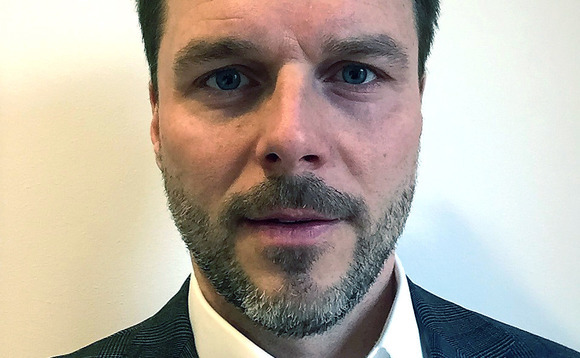
LP Profile: Kåpan Pensioner

As KУЅpan Pensioner looks to increase its allocation to private equity, Sofia Karadima speaks to Mikael Falck, head of alternatives at the Swedish pension fund, to assess appetite and exposure to the asset class, as well as hopes to kick-start co-investment
Established in 1992, Kåpan Pensioner manages occupational pensions of current and former government employees in Sweden.
Private equity has been part of the firm's investment strategy since 2007, but up until 2017 it formed part of the alternatives allocation. Following a restructuring of the portfolio, private equity has become part of its overall equity allocation.
The SEK 100bn LP started by investing in funds-of-funds, but as the programme matured, the focus has shifted more towards single funds. Over 2017-2019, the average yearly investment was SEK 1.5bn (€137m). The team is looking to increase its private equity allocation to somewhere between 4% and 5%, up from 3.8% currently.
The breakdown of the private equity portfolio is 54% buyouts, 18% growth equity, 22% secondaries, 1% venture and 5% funds-of-funds.
"A very large part of our portfolio is in secondaries, due to the fact that we have a vintage gap in our private equity portfolio," says Mikael Falck, head of alternatives at Kåpan Pensioner. "We only did a few private equity commitments over 2008-2010 in the aftermath of the financial crisis. Thus, when we reactivated the private equity programme a few years ago, we decided to try and fill this gap with vintage exposures that were three to four years backwards looking."
Kåpan Pensioner committed to six funds in 2019. The ticket size varied from SEK 140m to SEK 430m, with the average being around SEK 330m. The typical fund size also varies, as the LP is looking for diversification across managers. Its private equity portfolio consists of 40% mid-cap, 38% large-cap, and 22% mega-cap (that is, vehicles of more than SEK 5bn).
Despite its interest in and commitment to co-investments, which can reduce overall fees and improve relationships with investment managers, the organisation has not made any so far, due to a lack of resources and an investment team of only two.
"The decision to start co-investing is a long-term commitment. You need to have a clear strategy to build up a diversified portfolio and you need the resources to be able to quickly react to investment opportunities. When a co-investment opportunity appears, you typically only have a few weeks to do your assessment and due diligence, so a bigger team is needed," says Falck, adding that in the future things could change, as there may be the opportunity to use external teams to provide expertise and resources.
At 2% of total private equity allocation, the LP's exposure to venture capital is limited and mainly consists of old vintages. Falck says there is nothing to restrict the organisation from investing in VC, but at the moment he says the firm probably would not consider investing in the asset class, as the focus is on buyouts and growth equity.
Geographical reach
While the organisation has a global private equity programme, the focus is mainly on Europe and the US. "We invest in Europe and the Nordic region, as it is close to home and we know the markets well. We also focus on the US, as it is the most mature and sophisticated private equity market, where there is a vast range of opportunities, especially in the mid-market space," says Falck.
When asked about investing in the UK, Falck says the organisation would consider investing there at some point, as it offers a mature private equity market. However, he would not currently opt for a UK-only manager due to ongoing uncertainty around Brexit.
As for Asia and emerging markets, Falck says the organisation has not backed any standalone Asian private equity managers to date. However, the organisation has gained exposure to Asia and emerging markets through international strategies, where it has backed mega-funds that allocate to the region.
The geographical allocation of the private equity portfolio currently consists of 58% to the US, 37% to Europe and 5% to the rest of the world.
When selecting a new manager, Kåpan is not only looking for a good track record, but for consistency in that track record over a long time.
"There are things to consider beyond absolute returns. We look at the consistency of the track record, the capital deployment pace, risk awareness and mitigation, but we also look at how managers perform over cycles," says Falck.
He adds that the firm is open to the idea of investing with first-time funds, but a typical situation would be one where the manager is a spinout team that has previously worked well together and has the track record to show for it.
As for the impact of the coronavirus pandemic, Falck remains stoic for now: "We are closely following the evolution of the outbreak and its possible impact on the economy. The impact of the Covid-19 virus is too early to assess as of now. As such, we are not currently altering our strategy or allocation to private markets." Falck adds that it is also too early to assess return implications: "Private markets follow a quarterly reporting scheme, so even just the impact of Q1 2020 will not be known until April or May."
Key team members
Mikael Falck is head of alternative investments. He has previously worked for Nordea Investment Management and CIM funds, among others.
Arvid Letzén is portfolio manager within alternative investments. He has previously worked for Nordea Asset Management.
Latest News
Stonehage Fleming raises USD 130m for largest fund to date, eyes 2024 programme
Sponsor acquired the public software group in July 2017 via the same-year vintage Partners Group Global Value 2017
Stonehage Fleming raises USD 130m for largest fund to date, eyes 2024 programme
Czech Republic-headquartered family office is targeting DACH and CEE region deals
Stonehage Fleming raises USD 130m for largest fund to date, eyes 2024 programme
Ex-Rocket Internet leader Bettina Curtze joins Swiss VC firm as partner and CFO
Stonehage Fleming raises USD 130m for largest fund to date, eyes 2024 programme
Estonia-registered VC could bolster LP base with fresh capital from funds-of-funds or pension funds









